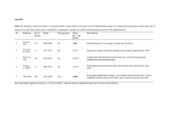Por favor, use este identificador para citar o enlazar este ítem:
http://hdl.handle.net/20.500.11765/15813
Variability and trends of near-surface wind speed over the Tibetan Plateau: The role played by the westerly and Asian monsoon
| Título : | Variability and trends of near-surface wind speed over the Tibetan Plateau: The role played by the westerly and Asian monsoon |
| Autor : | Zhang, Gang-Feng; Azorín Molina, César; Chen, Deliang; McVicar, Tim R.; Guijarro Pastor, José Antonio


|
| Palabras clave : | Tibetan Plateau; Wind speed; Decadal change; Physical processes; Atmospheric circulation |
| Fecha de publicación : | 2024 |
| Editor: | Elsevier; KeAi |
| Citación : | Advances in Climate Change Research [In press]. 2024, p. 1-12 |
| Versión del editor: | https://doi.org/10.1016/j.accre.2024.04.007 |
| Resumen : | Near-surface wind speed exerts profound impacts on many environmental issues, while the long-term ( 60 years) trend and multidecadal variability in the wind speed and its underlying causes in global high-elevation and mountainous areas (e.g., Tibetan Plateau) remain largely unknown. Here, by examining homogenized wind speed data from 104 meteorological stations over the Tibetan Plateau for 1961e2020 and ERA5 reanalysis datasets, we investigated the variability and long-term trend in the near-surface wind speed and revealed the role played by the westerly and Asian monsoon. The results show that the homogenized annual wind speed displays a decreasing trend (0.091 m s1 per decade, p < 0.05), with the strongest in spring (0.131 m s1 per decade, p < 0.05), and the weakest in autumn (0.071 m s1 per decade, p < 0.05). There is a distinct multidecadal variability of wind speed, which manifested in an prominent increase in 1961e1970, a sustained decrease in 1970e2002, and a consistent increase in 2002e2020. The observed decadal variations are likely linked to large-scale atmospheric circulation, and the correlation analysis unveiled a more important role of westerly and East Asian winter monsoon in modulating near-surface wind changes over the Tibetan Plateau. The potential physical processes associated with westerly and Asian monsoon changes are in concordance with wind speed change, in terms of overall weakened horizontal air flow (i.e., geostrophic wind speed), declined vertical thermal and dynamic momentum transfer (i.e., atmospheric stratification thermal instability and vertical wind shear), and varied Tibetan Plateau vortices. This indicates that to varying degrees these processes may have contributed to the changes in near-surface wind speed over the Tibetan Plateau. This study has implications for wind power production and soil wind erosion prevention in the Tibetan Plateau. |
| URI : | http://hdl.handle.net/20.500.11765/15813 |
| ISSN : | 1674-9278 |
| Colecciones: | Artículos científicos 2023-2026 |
Ficheros en este ítem:
| Fichero | Descripción | Tamaño | Formato | ||
|---|---|---|---|---|---|
| ACCR_Zhang_2024.pdf | 3,41 MB | Adobe PDF |  Visualizar/Abrir | ||
| 1-s2.0-S1674927824000... | 6,88 MB | Adobe PDF |  Visualizar/Abrir |
Los ítems de Arcimis están protegidos por una Licencia Creative Commons, salvo que se indique lo contrario.





